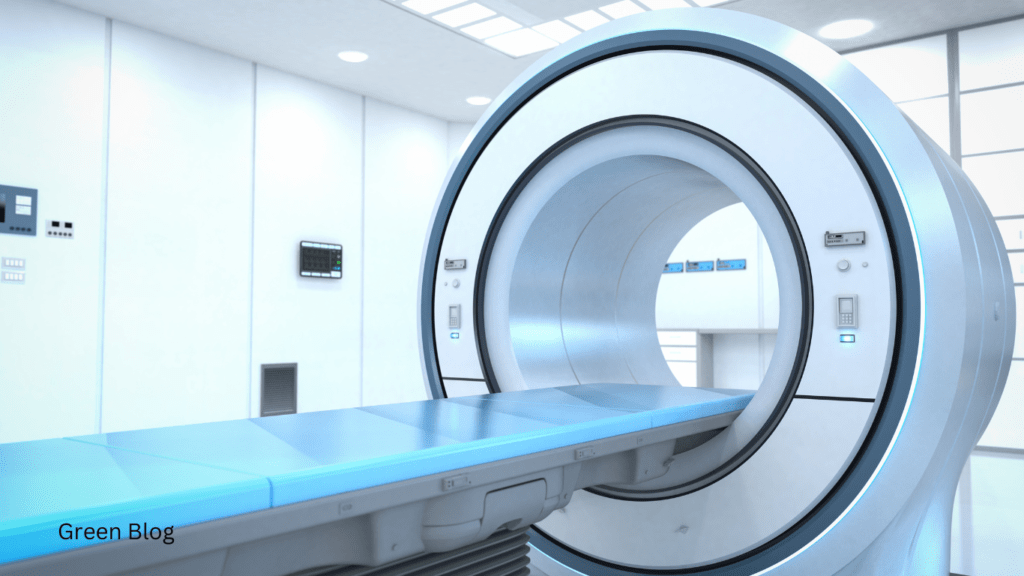1. Introduction
Artificial Intelligence (AI) is transforming industries across the globe, and healthcare is no exception. With the advent of sophisticated AI technologies, healthcare systems are experiencing unprecedented advancements. From enhancing diagnostic accuracy to streamlining administrative processes, AI is poised to revolutionize the way we approach medical care. This blog post explores the current applications of AI in healthcare, highlights its potential to improve patient outcomes, and examines the ethical considerations and future prospects of this groundbreaking technology.
2. Understanding AI in Healthcare
AI encompasses a broad range of technologies designed to perform tasks that typically require human intelligence. Key components of AI include machine learning, deep learning, and natural language processing (NLP). Machine learning involves training algorithms on large datasets to identify patterns and make predictions. Deep learning, a subset of machine learning, uses neural networks to mimic the human brain’s processing capabilities. NLP enables machines to understand and interpret human language, facilitating more natural interactions between computers and humans.
The application of AI in healthcare is not a recent phenomenon. Early uses of AI date back to the 1970s, with systems like MYCIN, designed for infectious disease diagnosis and therapy recommendations. Over the years, advancements in computational power, data availability, and algorithmic innovations have significantly expanded AI’s role in healthcare. Today, AI technologies are integral to various aspects of medical practice, offering new solutions to longstanding challenges.
3. Current Applications of AI in Healthcare
AI’s impact on healthcare is evident in numerous areas, each contributing to improved patient care and operational efficiency.
Medical Imaging and Diagnostics
AI has made significant strides in medical imaging and diagnostics. AI algorithms can analyze medical images such as X-rays, MRIs, and CT scans with remarkable accuracy, often surpassing human radiologists. For example, Google’s DeepMind developed an AI system capable of detecting over 50 eye diseases from retinal scans with high precision. Similarly, AI tools in pathology can assist in identifying cancerous cells in histopathological slides, reducing diagnostic errors and facilitating early intervention.

Predictive Analytics and Risk Assessment
Predictive analytics powered by AI enables healthcare providers to anticipate disease outbreaks and patient outcomes. AI models can analyze patient data, including genetic information, lifestyle factors, and medical history, to predict the likelihood of conditions like diabetes, heart disease, and cancer. For instance, the Cleveland Clinic’s predictive analytics platform uses AI to identify patients at risk of cardiac arrest, allowing for timely preventive measures. These predictive tools help in proactive healthcare management, ultimately improving patient prognosis.
Personalized Medicine
AI is revolutionizing personalized medicine by tailoring treatment plans to individual patients. By analyzing genetic data, AI can identify specific genetic mutations and recommend targeted therapies. This approach is particularly beneficial in oncology, where AI helps match patients with the most effective treatments based on their unique genetic profiles. AI-driven personalized medicine enhances treatment efficacy, minimizes adverse effects, and paves the way for precision healthcare.
Administrative Applications
AI is also transforming administrative tasks within healthcare systems. AI-powered solutions can automate scheduling, billing, and patient management processes, reducing administrative burden and increasing efficiency. For example, chatbots and virtual assistants can handle appointment bookings and answer patient queries, freeing up valuable time for healthcare professionals. By streamlining these tasks, AI allows healthcare providers to focus more on patient care and less on paperwork.
4. AI in Enhancing Patient Care
AI technologies are enhancing patient care through innovative solutions that improve accessibility, efficiency, and outcomes.
Virtual Health Assistants and Chatbots
Virtual health assistants and chatbots, powered by AI, provide round-the-clock support to patients. These tools can offer medical advice, remind patients to take medications, and answer health-related questions. For example, Ada Health’s AI-powered app conducts symptom assessments and provides personalized health recommendations. Similarly, Babylon Health’s chatbot uses AI to simulate a doctor’s consultation, guiding patients through a series of questions to determine the next steps in their care. These virtual assistants improve patient engagement and adherence to treatment plans, ultimately enhancing healthcare outcomes.

Remote Monitoring and Telemedicine
AI is a driving force behind the growth of remote monitoring and telemedicine. Wearable devices equipped with AI algorithms can continuously monitor patients’ vital signs, detect anomalies, and alert healthcare providers in real-time. For instance, the Apple Watch uses AI to monitor heart rate and detect irregularities, such as atrial fibrillation, enabling early intervention. Telemedicine platforms, enhanced by AI, facilitate virtual consultations, making healthcare accessible to patients in remote or underserved areas. This technology not only improves access to care but also reduces the burden on healthcare facilities.
AI in Surgery and Robotics
AI-powered surgical robots are transforming the field of surgery. These robots assist surgeons in performing precise and minimally invasive procedures, reducing the risk of complications and speeding up recovery times. The da Vinci Surgical System, for instance, uses AI to enhance the surgeon’s precision and control during complex surgeries. By integrating AI into surgical practice, healthcare providers can achieve better patient outcomes and optimize surgical performance.
5. Challenges and Ethical Considerations
While AI offers immense potential, it also raises several challenges and ethical concerns that must be addressed to ensure its responsible use in healthcare.
Data Privacy and Security
The use of AI in healthcare involves the processing of vast amounts of patient data, raising concerns about privacy and security. Ensuring the confidentiality and integrity of patient information is paramount. Regulatory frameworks like the General Data Protection Regulation (GDPR) in Europe and the Health Insurance Portability and Accountability Act (HIPAA) in the United States provide guidelines for protecting patient data. Healthcare providers must implement robust data encryption, secure storage solutions, and stringent access controls to safeguard sensitive information.
Bias and Fairness in AI Algorithms
AI algorithms can inadvertently perpetuate biases present in training data, leading to unfair or discriminatory outcomes. For example, if an AI model is trained on data predominantly from a specific demographic, it may perform poorly on patients from underrepresented groups. Addressing this issue requires diverse and representative training datasets, as well as ongoing monitoring and evaluation of AI systems. Efforts to ensure fairness and inclusivity in AI healthcare applications are essential to avoid exacerbating health disparities.
Ethical Dilemmas
AI in healthcare presents ethical dilemmas, such as the balance between innovation and patient autonomy. For instance, AI recommendations may conflict with a patient’s personal preferences or values. Ensuring that AI systems operate transparently and involve patients in decision-making processes is crucial. Ethical guidelines and oversight mechanisms must be established to navigate these challenges and uphold patient rights.
6. Future Prospects of AI in Healthcare
The future of AI in healthcare holds exciting possibilities, with ongoing research and emerging technologies poised to further transform medical practice.
Emerging AI Technologies
Advancements in AI research continue to introduce new technologies with the potential to revolutionize healthcare. For example, reinforcement learning, a type of machine learning where algorithms learn by interacting with their environment, shows promise in optimizing treatment protocols. AI-driven drug discovery platforms are accelerating the identification of potential therapeutics, reducing the time and cost associated with bringing new drugs to market. These emerging technologies are set to enhance various aspects of healthcare, from diagnosis and treatment to patient care and management.
Integrating AI with Other Technologies
The integration of AI with other technologies, such as the Internet of Things (IoT) and blockchain, can further enhance healthcare systems. IoT devices equipped with AI can provide continuous health monitoring, while blockchain technology ensures secure and transparent data sharing. For instance, AI and IoT can work together to create smart hospitals where patient data from various sources is analyzed in real-time to optimize care. The synergy between these technologies promises a more interconnected and efficient healthcare ecosystem.
AI in Global Health
AI has the potential to address global health challenges, particularly in low-resource settings. AI-powered diagnostic tools and mobile health applications can bring essential healthcare services to remote and underserved areas. For example, AI algorithms can assist in diagnosing infectious diseases like malaria and tuberculosis using smartphone-based microscopy. By leveraging AI, global health initiatives can improve access to quality healthcare and reduce health disparities worldwide.
7. Conclusion
AI is undeniably transforming the healthcare landscape, offering innovative solutions to enhance patient care, improve diagnostic accuracy, and streamline administrative processes. The current applications of AI in healthcare demonstrate its potential to revolutionize medical practice, while ongoing research and emerging technologies promise even greater advancements in the future. However, the integration of AI in healthcare also presents challenges and ethical considerations that must be carefully navigated to ensure responsible and equitable use.
As we move forward, it is crucial for healthcare providers, policymakers, and technology developers to collaborate and establish guidelines that promote the ethical and transparent use of AI. By addressing concerns related to data privacy, algorithmic bias, and patient autonomy, we can harness the full potential of AI to create a more efficient, effective, and inclusive healthcare system.
In conclusion, the role of AI in healthcare is multifaceted and transformative. By embracing AI technologies and addressing the associated challenges, we can pave the way for a future where healthcare is more personalized, accessible, and equitable. Stakeholders across the healthcare ecosystem must work together to realize the full potential of AI and ensure that its benefits are shared by all.
8. References and Further Reading
- List of references used
- Suggestions for further reading on AI in healthcare
- Explore Micro2media
